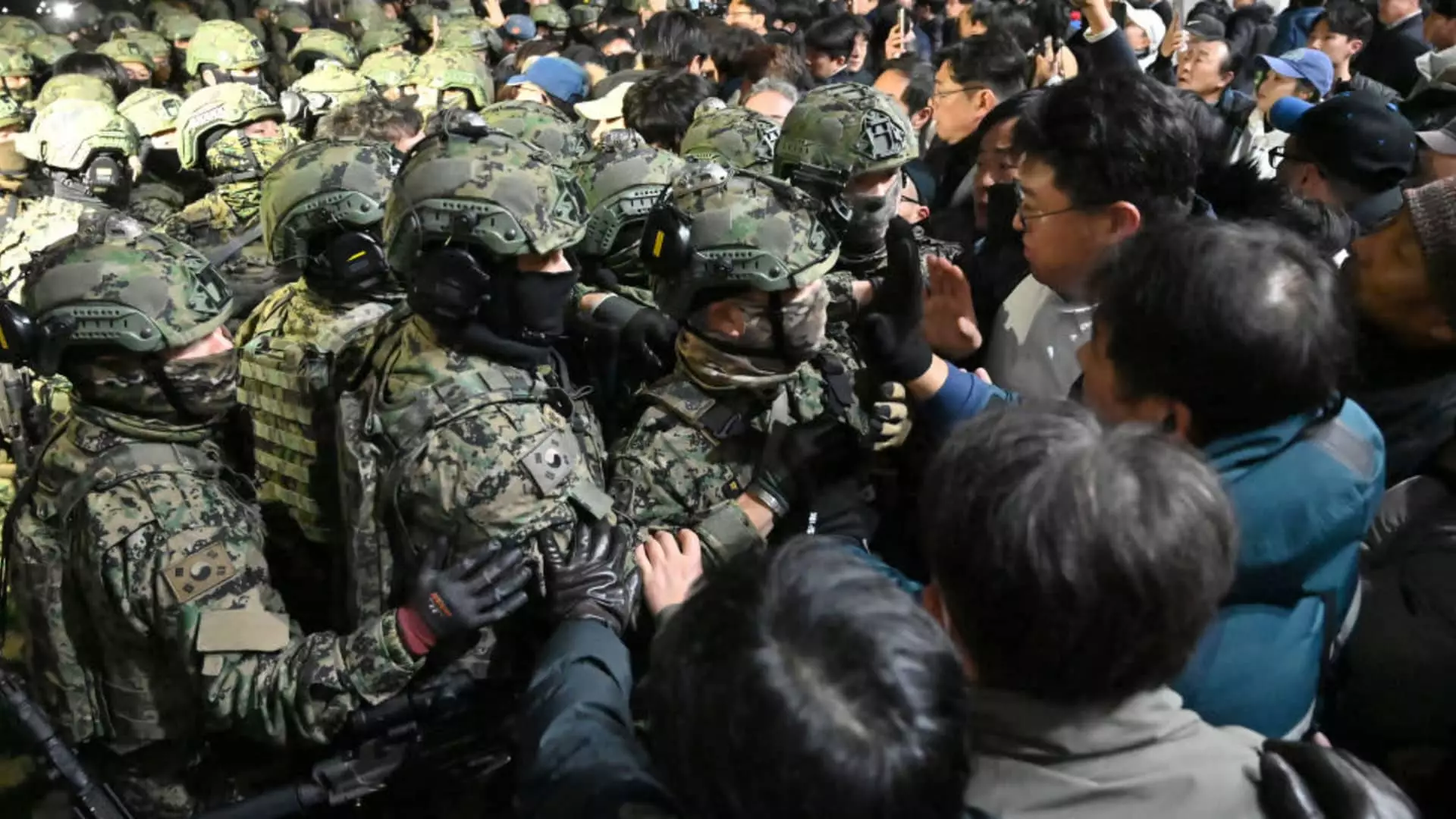The dynamics of the South Korean stock market took a tumultuous turn recently, reflecting the nation’s political instability and the broader implications for the economy. The unexpected political upheaval triggered by President Yoon Suk Yeol’s emergency martial law declaration sent shockwaves through financial markets, raising apprehensions about governance and social stability in the world’s 13th-largest economy.
In an immediate reaction, the iShares MSCI South Korea ETF, a prominent index tracking a broad array of large and mid-sized South Korean companies, experienced a significant decline, plummeting nearly 7% and reaching its lowest level in a year. This drastic drop underscored investor fears regarding both the economic outlook and the impact of political tensions on corporate performance. Although the ETF managed to recover slightly later in the day, it still recorded a loss of approximately 1.8%. This marked a continuation of a prevailing downward trend, with this being the ETF’s fifth consecutive day of losses amid exceptionally high trading volume—with over 35 million shares changing hands, representing more than tenfold the typical trading volume based on 30-day averages.
The turbulence was not confined to the ETF alone; individual stocks reflected similar patterns of decline. The American depositary receipts (ADRs) of Korea Electric Power saw a staggering 5% drop. Similarly, Coupang, a leading e-commerce player in South Korea, recorded a 6% reduction in its stock price, while KT Corp., South Korea’s former national telecommunications provider, experienced a 3% decrease. Furthermore, the notable steel manufacturer Posco faced a decline exceeding 6%. Such widespread losses illustrate how political uncertainty can permeate various sectors of the economy rapidly.
The martial law decree, which prohibited all political activities deemed disruptive or likely to incite social unrest, marks a profound shift in governance in South Korea. No president had resorted to such measures since 1980, raising questions about the future of democratic processes in the nation. During the crisis, a significant backlash from lawmakers ensued, with 190 of the 300 National Assembly members moving quickly to overturn the emergency measure within hours of its announcement, indicative of a divided political landscape. President Yoon’s accusations against opposition parties of being sympathetic towards North Korea further exacerbated tensions within the parliament.
Global Concerns and Responses
International reactions have also surfaced, with statements from the White House indicating that the U.S. administration is closely monitoring the evolving situation. Such an engagement underscores the geopolitical dimensions that a crisis in South Korea could entail, given its strategic importance in the region. The U.S. dollar gained 1.9% against the South Korean won, reflecting anxiety among traders and investors regarding economic stability amidst political turmoil.
As South Korea grapples with the fallout from this political crisis, the path forward remains fraught with uncertainties. The volatility in the stock market and the swift political action taken by lawmakers point to a nation at a crossroads. Investors and citizens alike will be keenly observing how these developments unfold as they hold significant implications for the stability and economic health of South Korea. Navigating through this tumultuous period will require vigilance, strategic foresight, and possible reforms to reestablish confidence in political and economic institutions.

